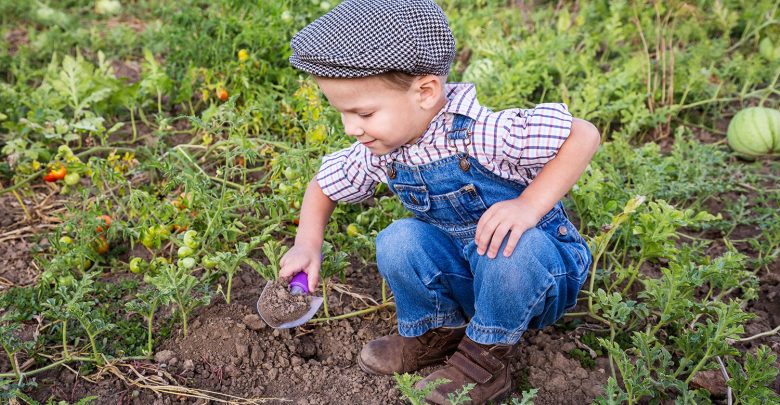Life Style
Sustainable actions bring children closer to nature
Adventist institutions have developed actions in favor of the Environment.

Brasilia, Brazil … [ASN] June 5 is the commemoration of World Environment Day, established by the General Assembly of the United Nations on the Human Environment, held in Stockholm, Sweden. Since then, actions to preserve the ecosystem worldwide have been developed. For the biologist Luciana Guilhem, contact with nature is a fundamental step towards awareness of the preservation of the environment.
For that reason, the schools of the Adventist Education Network have created projects that bring students closer to nature. «The days in which we live, most of the children live in apartments or very crowded places. They do not have much contact with nature, «laments Raquel Ricarte, head of the Northeast Network. The pediatrician Dayse Oliveira explains that the contact with nature contributes to reduce the incidence of respiratory ailments, besides having great importance in the cognitive development of children.
In Gravatá, city of Pernambuco, the Adventist Institute of Ensino (IAPE) built a mini-farm that received the name of «Small farm». In the space, inaugurated on June 2, all science classes will be held for students in early childhood and fifth grade. Outside of class time, it will be available to students from other years, parents and community members. They can go to the place on foot or in the body of a tractor (properly prepared). «From the school building to the farm, the students go on a tractor that has a large body. They are so happy! «, Account Raquel Ricarte, one of the coordinators of the project. The children also study fish farming – helping to take care of the school’s lake fish – and the birds. «In the classes in the henhouse, the students take eggs in their hands … It’s a party!» Commemorates the teacher.
The biologist Luciana Guilhem believes that outdoor classes contribute to encourage the perception and awareness of the environment, which she defines as a set of physical, chemical and biological components that interact with each other, causing direct or indirect effects and governing life in all its forms. » «Knowing, having contact and proximity is essential to develop respect and awaken curiosity for study,» he adds.
Para Raquel, ese contacto ayuda al desarrollo cognitivo, físico, social y espiritual. “Ellos aprenden a cuida de otro ser vivo, conceptos de ciudadanía, respirar aire puro, tener contacto con lo verde, y toman más agua porque caminan más. También reflexionan en la creación, al final la naturaleza es una revelación del amor de Dios. Cuanto mayor el contacto con la naturaleza, mayor es el contacto con el Creador”, concluye. La pediatra Dayse Oliveira añade “En contacto con la naturaleza, el niño queda más tranquilo, logra dormir mejor y aprender más rápido” refuerza.
At the other end of the country, in the city of Nuevo Hamburgo, in Rio Grande do Sul, the 5th-year students of the Adventist School began working in a 100% organic garden at the beginning of the month of May of this year. «The first phase was preparing the soil. They transformed the land together with the agronomist using organic products that do not attack the environment, «says the institution’s pedagogical coordinator, Ester Sabino Fávaro. In the last week of May, with the soil ready, the students already made the first planting using mulches of leaves that can be used to make tea, well-used drinks in the southern Brazilian winter. And during the first week of June they began to plant other foods such as green onions, parsley, carrots, tomatoes and broccoli.
The school also has a green space next to the property with free access for students, either for science classes or to pass the recess. «Students also use that space for classes and research. They look for insects, worms and other garden microorganisms and are surprised to find them, «says coordinator Ester Fávaro. The new discoveries work cognitive patterns, helping in the control of behavioral and emotional disorders such as hyperactivity and sleep disturbances, explains pediatrician Dayse Oliveira. The specialist advises that parents and caregivers make contact with nature a routine that occupies at least one day of the week. «Walking in the park, leaving the child in contact with a green area and animals at least once a week is essential for development,» he says.
Otras acciones
In addition to Adventist Education Network activities throughout the country, the Seventh-day Adventist Church also offers actions that enable contact with nature through the Pathfinder Club. Courses are offered, which are called specialties. In the Nature Study Manual, the conquerors study flowers, insects, fungi, trees, seaweed, insects, mammals, beekeeping, geology, agriculture and much more. Children and adolescents between 10 and 15 years of age can participate in the activities of the Club.
UN and the environment
In 1972, the Stockholm Conference was created, the first Environmental Manifesto that established that «defending and improving the environment for present and future generations became a fundamental objective for humanity», according to the sixth paragraph of the Declaration of the Conference of the United Nations Environment. [Equip ASN, Aline do Valle].
Watch the video of the position of Adventists in relation to the environment.






